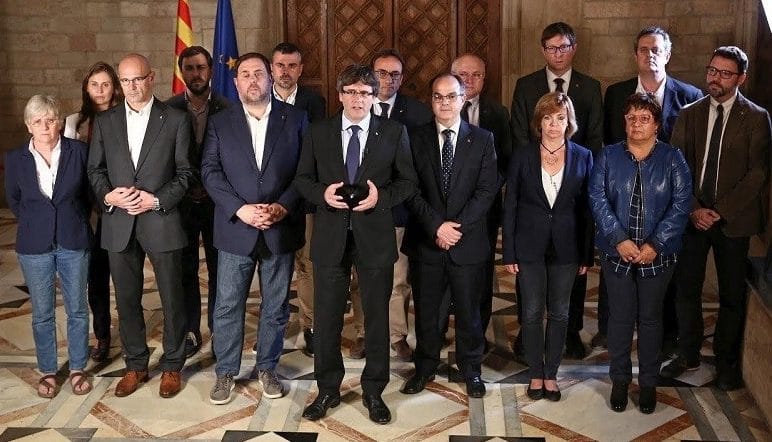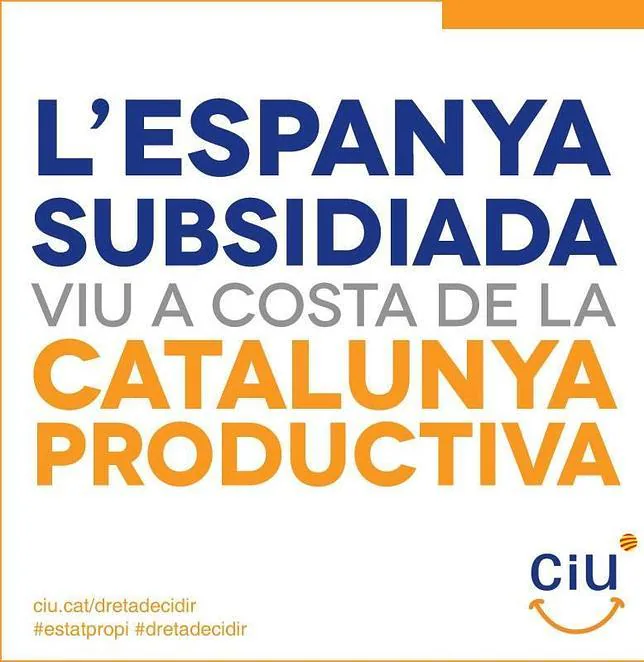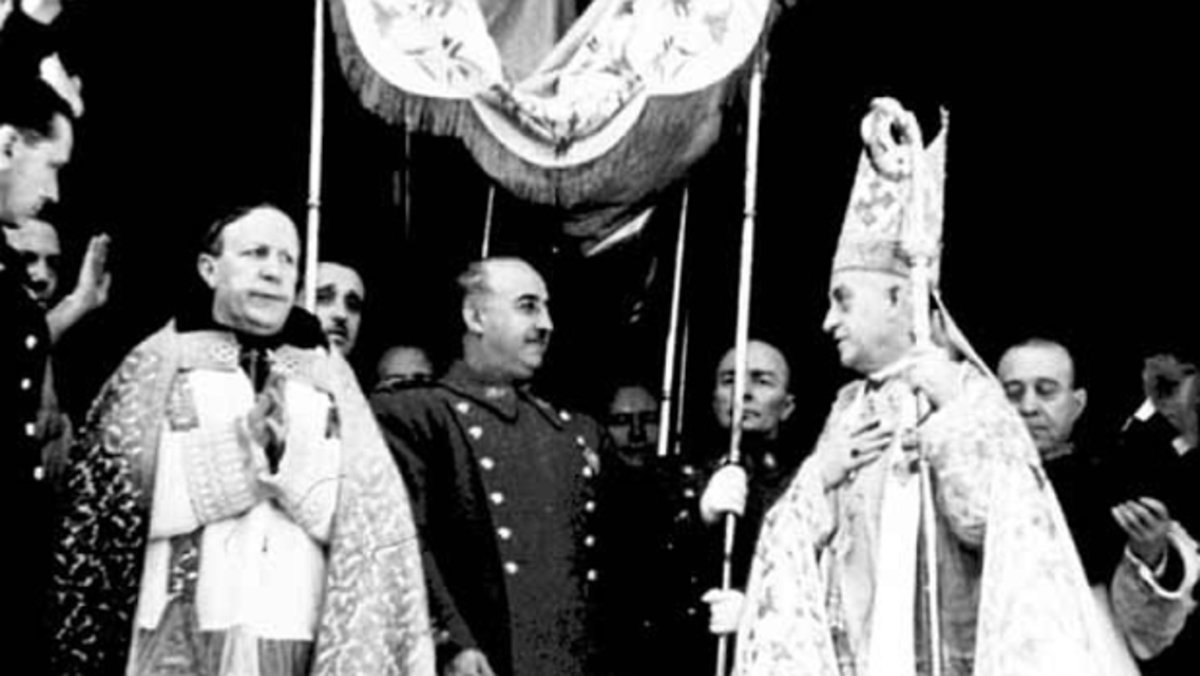 On Monday 14 October 2019 the Spanish Supreme Court is set to deliver its
sentence on the high-ranking Catalan politicians put on trial for holding an
illegal referendum on Catalan independence on 1 October 2017.
On Monday 14 October 2019 the Spanish Supreme Court is set to deliver its
sentence on the high-ranking Catalan politicians put on trial for holding an
illegal referendum on Catalan independence on 1 October 2017.
The illegal referendum of 1 October 2017 and
its aftermath[i]
There are many myths surrounding this referendum and I
will attempt to dispel a few of them below. Firstly, let’s get this very clear,
the referendum was illegal. It was in breach of both the Spanish constitution
and the governing law of the Generalitat, the regional authority of Catalonia
holding it.
An analogy might help here, it was as if I were to hold a
referendum on my street in the UK becoming independent of the rest of the UK
and consequently, exempting myself from having to pay any taxes to the UK
government and obey parliamentary mandates or UK law. One afternoon, over a few
drinks, I get together in my garden with a few friends and we all vote in
favour of holding this referendum. A few weeks later we park a few urns in the
street, suggest that our neighbours, but only those in favour, print off their
own ballot papers at home and deposit them in said urns. Obviously, the result
turns out to favour the independence of my street, and consequently I declare
my street independent. This is of course setting to one side the fact that the
referendum had no legal validity or effect and that the vast majority of those
taking part in it, less than 50% of the people actually living on my street,
were in favour of only one side.
Effectively this was what happened on 1 October 2017 in
Catalonia. You don’t believe the bit about the ballots being printed at home?
Well that actually was the case.
The Spanish state had to react quickly and late to what was
going on. Mainly because the Catalan regional police, the Mossos d’Esquadra,
showed themselves to both inept and partisan, favouring the nationalist
government and dragging their feet when it came to stopping the illegal vote.[ii]
Given the urgency, Rajoy’s PP (Conservative) Government scuppered the Civil Guard and sent it in to complete the confiscation of the urns. Crowds resisted
and there were several confrontations. But despite the Catalan nationalists
milking this for all it was worth, there were no deaths and barely a handful of
injuries.
One young woman claimed for example that her fingers had
been broken, it turned out she had a single swollen finger. When it was all
over four people had to be kept in hospital.[iii]
The Catalan Regional Government said it would assist
private citizens to sue the state.[iv]
There are still some 28 cases ongoing in 26 regional
courts, but not all involve violence, some involve the misuse of personal data
and some are complaints made about local mayors who allowed urns to be placed
in their neighbourhoods…
Because you see, and this is an essential point, not
all Catalans support independence, in fact more than half do not. Recently,
this schism has even spread to the Mossos, with pro-Spain and pro-Catalan
Independence officers having running arguments online.[v]
An endogamous political class
Further to the above, however, there is a very stark
difference. The Catalan independence movement is almost completely inbred,
it is dominated by a particular group of related people. Genealogy has become
very popular hobby in recent years, and even at its most basic level that of
the surname borne by people it can tell us a lot. This is particularly true of
Catalonia and the nationalist movement.
The most common surnames to be found in Catalonia will
sound familiar even to English ears, because they are also the most common Spanish
names found in the rest of Spain and South America, names like López, García,
Martínez, Pérez, Fernández, González and Sánchez.
All these names are of Castilian origin (the termination “ez”
means son/daughter of, so that would be the child of Lope, of Martin, Pere or
Pedro, Fernando, etc. etc.). It would be expected that such names would appear
in equal frequency among those holding political positions in Catalonia. The fact is, they don’t.
Modern Catalan politics and especially the independence
movement is governed by people with Catalan surnames, such as Vila, Serra,
Solé, Vidal, Bosch, Pujol, Font and Puig (I had to declare an interest here, my
own surname could be characterised as a Catalan surname rather than a Castilian
one). It turns out that people with surnames borne by only 13% of the general
population of Catalonia, hold 40% of the posts in the Catalan political administration[vi]. Something very similar happens with first names, where Catalan Christian names clearly predominate in the political class but not in the general population.
In other words, the cupola of Catalan nationalist politics
is a segregated, exclusive world and access to it may depend more on who
your family were, if your grandparents were born in Catalonia or outside of it, rather than on merit. The basic truth is that Catalan
politicians are unrepresentative of the current general population of the
Catalan provinces.
 Finally, I should mention that of the 13 Catalan political
leaders currently on trial for the illegal referendum: Carles Puigdemont, Oriol
Junqueras, Joaquim Forn, Jordi Turull, Raül Romeva, Clara Ponsatí, Josep Rull,
Toni Comín, Dolors Bassa, Carme Forcadell, Marta Rovira, Jordi Sànchez and
Jordi Cuixart, only one, Jordi Sànchez, does not have a traditional Catalan surname.
Finally, I should mention that of the 13 Catalan political
leaders currently on trial for the illegal referendum: Carles Puigdemont, Oriol
Junqueras, Joaquim Forn, Jordi Turull, Raül Romeva, Clara Ponsatí, Josep Rull,
Toni Comín, Dolors Bassa, Carme Forcadell, Marta Rovira, Jordi Sànchez and
Jordi Cuixart, only one, Jordi Sànchez, does not have a traditional Catalan surname.
The politics of Catalan nationalism
Given the above it would be unsurprising to discover that
Catalan politics and the independence movement are in fact highly conservative.
Here is a poster from Convergència i Unió, one of
the premier nationalist parties in Catalonia. Yes, you read it right, it says “Catalonia
first”. It is from 1999, years before the orange groper rocked up to the
Whitehouse. The man in the picture is Jordi Pujol, party leader and leader of
the regional Catalan government, the Generalitat for 23 years, only a
handful of politicians could claim as many years at the top.
Mr Pujol and his family have been indicted of concealing
public money in private bank accounts in Andorra, Switzerland, Jersey, Cayman
Islands and other tax havens in excess of €100 million during his time in power.[vii] It is noteworthy that
significant parts of the Catalan nationalist elite circled the wagons around
the Pujol family (his three sons are also involved) and have so far managed to
protect them from the normal consequences that such charges usually bring.

A second Convergència i Unió poster, this time
from 2013 lays bare one of the main
driving forces behind the nationalist movement, “Subsidised Spain lives off productive
Catalonia” is the slogan, in other words, the main objection of the Catalan nationalists
to being part of Spain is that they see themselves as subsidising the rest of the
country. It becomes obvious that despite appearances, what is really lurking
behind the recently developed queasy smiley logo is money and vested monetary
interests, not to say the exceptionalism of believing that only the Catalans work
in Spain and only they produce income.
It is abundantly clear, then, that the Catalan nationalists
are not progressives. Another aspect here is to consider their relationship
with the catholic church. Catalan nationalists love to describe the rest of
Spain as backwards, repressive and fascistic still trapped in the era of the long-lasting
dictator Francisco Franco, who died in 1975.
 One of the main traits of the Franco dictatorship was the
mutually beneficial relationship between it and the catholic church. The
catholic church was then, like the catholic church in Ireland, an intolerant
force of repression. Franco was a favoured son to the extent that when he
visited any church in an official capacity, he was ushered in under a canopy.
One of the main traits of the Franco dictatorship was the
mutually beneficial relationship between it and the catholic church. The
catholic church was then, like the catholic church in Ireland, an intolerant
force of repression. Franco was a favoured son to the extent that when he
visited any church in an official capacity, he was ushered in under a canopy.
While the Catalan nationalists proclaim to the four winds how
socially advanced they are and how they aspire to create a “Catalan Republic”
it seems their relationship with the catholic church in the 21st century
bears an uncomfortable resemblance to that of Franco.[viii]
Above you can see the current head of the Generalitat,
the nationalist, Quim Torra i Pla leading prayers for the so called “political prisoners” last Sunday (6 October
2019) during a mass in the monastery of Monserrat. The monastery which is a very large building was so full that people
are sitting on the floor. Past head of the Generalitat, Jordi Pujol was also in
attendance.
It should be highlighted that Monserrat is not just any
monastery. The abbot recently admitted he was complicit in concealing multiple
cases of child abuse.[ix] And yet the Catalan
independents still think this is a great place to hold their little ceremony.
This did not happen years ago, it was in the media last
month, September 2019, but the independence "rebels" considered it an appropriate venue. The predator was nicknamed "Andreu Manos
Largas" "Andreu Longhands" he was a catholic scout troop
leader based in Montserrat and a priest.
One of the victims, Miguel Ángel Hurtado, says that he
believes that political representatives (yes, that would include those heading
the Generalitat during the illegal independence referendum), were dragging
their feet when it came to acting on child abuse.
In conclusion, when the Catalan nationalists start to rant
about “backwards Spain” or “corrupt Spain” and compare themselves to Gandhi, Martin
Luther King or Nelson Mandela, please bear this in mind, they are not really
progressives, they are not poor, they are not powerless, they are not untainted by corruption, they are not freedom
fighters and they are certainly not human rights martyrs. They are a close tribal caste
of opportunists, avaricious wolves in liberal sheep’s clothing, they are in it,
like most nationalists, entirely for themselves… And the power, and the money,
of course, it is always about the money.
[i] https://www.elconfidencial.com/espana/cataluna/2018-10-01/1octubre-cataluna-cronologia-referendum2017_1622549/
[ii] https://elpais.com/elpais/2018/01/10/inenglish/1515574330_704678.html
[iii] https://elpais.com/elpais/2017/10/04/inenglish/1507104937_874487.html
[iv] https://www.elperiodico.com/es/barcelona/20171002/barcelona-ayudara-a-heridos-por-el-1-0-a-denunciar-6326888
[v] https://sociedad.e-noticies.es/mossos-balcanizados-126424.html?rnd=787
[vi] https://drive.google.com/file/d/0B9K3QsORGY1ZblpJTTQ5WFpjNkk/view
https://www.vozpopuli.com/espana/Artur_Mas-Generalidad_de_Cataluna-Jordi_Pujol-Casta-Endogamia-Apellidos-xx-CiU-Gobierno-Cataluna-endogamia-casta-elites_0_758024197.html
https://en.wikipedia.org/wiki/Jordi_Pujol
[viii]
https://www.lasexta.com/noticias/nacional/torra-asiste-a-una-plegaria-en-el-monasterio-de-montserrat-en-solidaridad-con-los-presos-independentistas_201910065d99e5630cf2b33c9d0c0dfa.html
[ix] https://cadenaser.com/programa/2019/09/06/la_ventana/1567787095_452066.html





